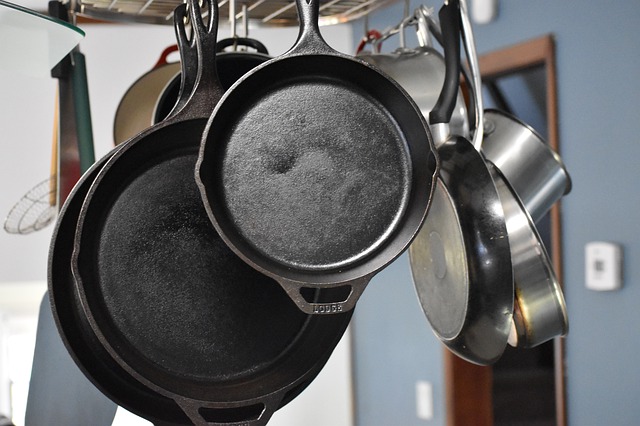The cast-iron skillet has been around for hundreds of years. This sturdy and trusted cookware was a kitchen must-have of our grandparents. Even before the introduction of the modern non-stick surface cookware like Teflon and ceramic coated surface cookware, cast iron cookware is still by far the most durable and one of the best and cheapest kitchen investments that you will make by any standard.
Dependable is the one word that will come to your mind when you describe cast iron skillets. It will last for centuries if you know how to maintain and care for it properly.
Many are intimidated by this cast iron cookware not because of its heavyweight but by its seasoning and care process. Some people have this notion that it requires a special cleaning routine to care for cast iron skillets. I must admit that you have to follow some simple steps to care for your cast iron cookware so you can enjoy using it for a very long time. And who wouldn’t want that?
Two words that you need to know when it comes to caring for your cast iron skillet – it’s cleaning and seasoning. Knowing the proper way to clean and season your cast iron skillet will help it last for generations to come.
Cleaning Cast Iron Cookware
- Wash your cash iron skillet in hot water immediately after use. Some purists who feel that is best to clean using water only but this user goes for hot soapy water with a stiff brush in cleaning my cast iron skillet. Whichever method you choose, just be mindful not to be too rough in scrubbing the surface and not to submerge your cast iron cookware in water so as not to damage the cast iron seasoning.
- Keep it dry. Moisture is the nemesis of cast iron cookware. Moisture + cast iron = rust! Cast iron cookware will rust if it isn’t dried immediately after cleaning. Towel dry your cast iron cookware and place it on the stove over low heat for a minute or two to remove the remaining moisture. Then applied a light coat of grease/oil inside the pan and heat up for a few minutes just to seal and restore the seasoning of your cast iron cookware that might have been lost during washing.
- Store your cast iron cookware with the lid off. This will further protect your cookware from moisture. Some even put a paper towel inside the pan to absorb moisture. Store your cast iron skillet in a dry place. Your oven is an ideal place to store your skillet.
Pros and Cons:
Pros:
- Durable, inexpensive, and naturally non-stick
- Retains heat well and distributes heat evenly
- Cooking in cast iron can naturally add iron into meals
- Extremely versatile
- Quite Cheap
Cons:
- Reactive to acidic foods
- Takes a long time to heat up
- Heavy

